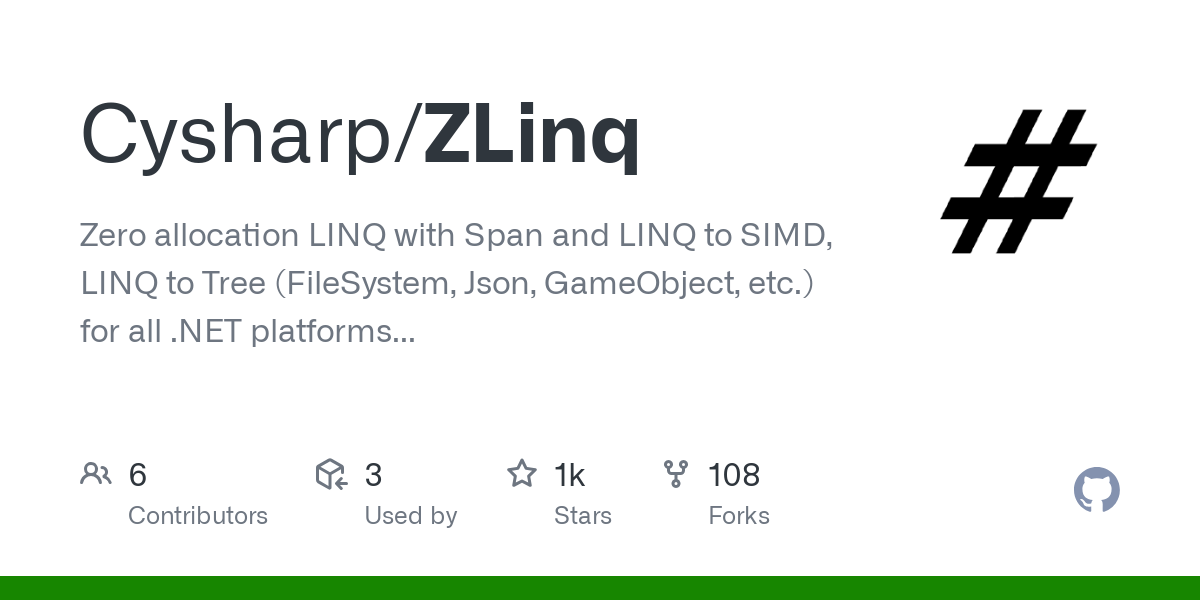I’ve recently discovered this project, which assuming it works as advertised (which I think wasn’t really tested yet, since it seems to be a pretty new repo) sounds like a pretty good library to add into your toolbox.
For those that do not know, LINQ is basically a query language over collections in C#, that allows you (from the top of my head) to do stuff like
someList.Where(x => x.value < 10).OrderBy(x => x.priority).Select(x => x.name)
which would give you a IEnumerable list with names of elements where value is smaller than 10, ordered by priority.
However, using LINQ in performance critical code, such as per-frame Updates, is not really a good idea because it unfortunately does generate a lot of garbage (allocations for GC to collect). Having a version that doesn’t allocate anything sounds awesome, assuming you are a fan of LINQ.
What are your thoughts? For me, it sounds like something really useful. While it’s not really that difficult to avoid LINQ, I’m a fan of the simplicity and descriptive nature of the syntax, and not having to avoid it would be great. It does seem there are quite a few issues starting to pop up, but it’s definitely a project that could be worth it to follow.



Personally, I hate the expression syntax. I would stick with the method syntax. (That you know and use and that ZLINQ is compatible to.)
The good thing about method syntax is that you have a clearly scoped context and state flow. You type
.Where, add a condition that is limited to the Where precondition parameter expression body, and afterwards have a clear state/result again.That is not the case in expression syntax. You can have variables, the operator order and aliasing is confusing, it’s SQL but worse.
I agree that in the context of gamedev you could generalize and call it such, but even then, saying “LINQ produces garbage” is over-generalized and missing context. It’s the wrong tool for the job/gamedev. Doesn’t mean it produces garbage/junk. In my eyes anyway. I feel like that context is important.
For me, garbage implies no use. What it allocates it makes use of. It’s just the wrong approach alltogether for gamedev.